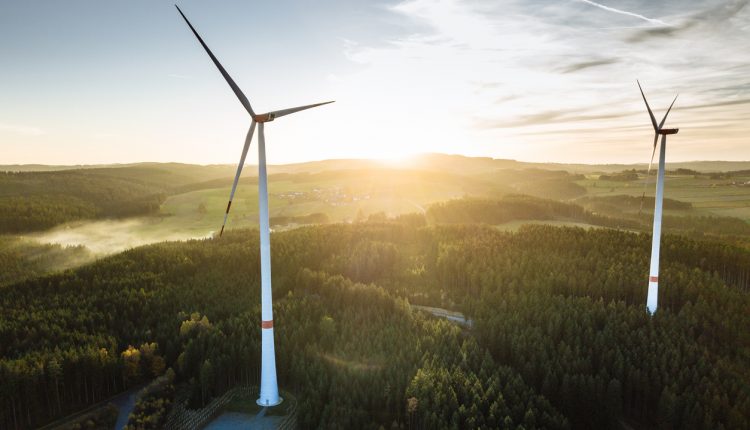Understand Your Rights. Solve Your Legal Problems

It’s no surprise then that the subject of our planet's ailing health was pivotal in the most recent UN climate talks in Poland, with Sir David Attenborough giving the grave warning of extinctions and catastrophes if climate change is not kept in check.
This short article from LPG energy supplier, Flogas, offers an overview of some of the key laws and bans in place to help support the effort to save our planet.
Though it was a game-changing innovation, plastic is now a threat to the planet. An estimated 12.7 million tonnes of it ends up in our oceans each year (the equivalent of a truck load every minute). This has led many countries to introduce bans or taxes to try and limit the exponential rise in plastic usage. Denmark started levying a charge on plastics bags as early as 1993, and the 2002 ‘bag tax’ in Ireland resulted in a huge 90% drop in demand for single-use plastic bags. More recently, Environment Secretary Michael Gove announced a ban on plastic straws, cotton buds and stirrers could be in place in the UK by late 2019. Looking ahead, the European Union has voiced its intention to ban a range of plastic items (including straws, plates and single-use cutlery) completely by 2021, justifying that these can be replaced with more sustainable materials.
With the dangers of plastic now well-documented, the public are more aware of the issue than ever before. This has led a number of major companies to make significant changes to their operations by ditching plastic (or pledging to do so rapidly). This includes food outlets such as McDonalds and Pizza Express, all Four Seasons and Hilton hotels, as well as pub chain Wetherspoons and sandwich shop Pret a Manger – to name but a few.
This deal was the first of its kind as it united the nations of the world under one goal. Nearly 200 countries within the United Nations Framework Convention on Climate Change (UNFCCC) came to a consensus in 2015 to cut greenhouse emissions and have committed to limit temperature rises worldwide by no more than 2C above pre-industrial times. In fact, the aim is to limit this further, to 1.5C if possible. Progress will be reviewed every five years and financial funding from donor nations will go to less developed countries.
The targets, however, may remain out of reach. A recent UN report suggests that the world actually needs to triple its current efforts to meet the 2C target.

In a world first, the UK set its own targets for reducing air pollution. In May 2018, the UK government published the Clean Air Strategy to cut air pollution and human exposure to particulate matter pollution – the fourth biggest health risk behind cancer, obesity and heart disease. The new strategy is part of a 25-year plan to leave the environment in a better state and is an addition to the £3.5 billion scheme already in place to reduce air pollution from road transport and diesel vehicles, set out in July 2017.
The strategy should be beneficial for health too. The goal is to halve the number of people living in areas where concentrations of particulate matter are above guideline limits by 2025. What’s more, it pledges to ensure only the cleanest domestic fuels are available, to tackle ammonia from farming, to address non-exhaust emissions of micro plastics from vehicles, to empower local government with new primary legislation, to invest in scientific research and innovation in clean technology, and much more.
It’s difficult to discuss climate change without considering the transport industry. Transportation accounts for a higher overall share of greenhouse gas emissions than any other sector of the economy, so changes are vital if the UK is to hit its carbon reduction targets. The Department for Transport’s 2018 'Road to Zero Strategy,’ sets out that at least 50% (and as many as 70%) of new car sales will be ultra-low emission by 2030, and up to 40% for new vans. This policy also addresses reducing emissions from vehicles already on the roads and plans to end the sale of conventional petrol and diesel cars and vans by 2040.
Electric vehicles will potentially be the catalyst for achieving this target. The move towards zero emission cars will mean a major expansion of green infrastructure across the country, with a major focus on increasing the availability of charging stations for electric vehicles (EVs). The Road to Zero strategy sets the stage for what the government has hailed ‘the biggest technology advancement to hit UK roads since the invention of the combustion engine.’

Coal will soon be a fuel of the past. There are eight coal-fired power stations in use in the UK today, but a ban on coal introduced this year (which will come into force in October 2025) has presented energy companies with an ultimatum: adapt your existing assets to generate greener energy or close your power station. This rule has already set in motion the change, with some stations adapting or building infrastructure for cleaner energy generation, whilst others have decided to remain active right up until the ban.
The plan to replace coal power plants with cleaner alternatives came after climate talks in Bonn. It was Canada, the UK and the Marshall Islands who led the way, forming a global alliance called ‘Powering Past Coal.’ One year on since its launch, the alliance now has 75 members who are committed to replacing unabated coal-fired electricity with cleaner alternatives.
Sources: Guardian, BBC, The Sun, Greenpeace, Reusethisbag, DEFRA, Climate Action, Poweringpastcoalalliance, Gov.uk






